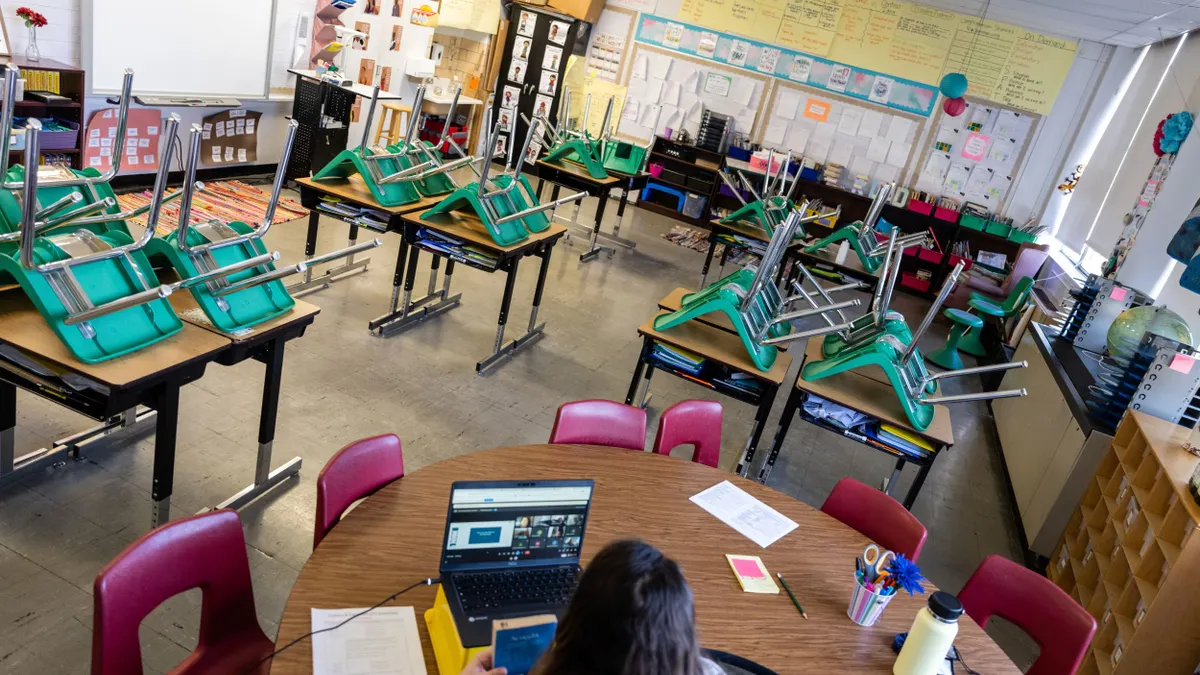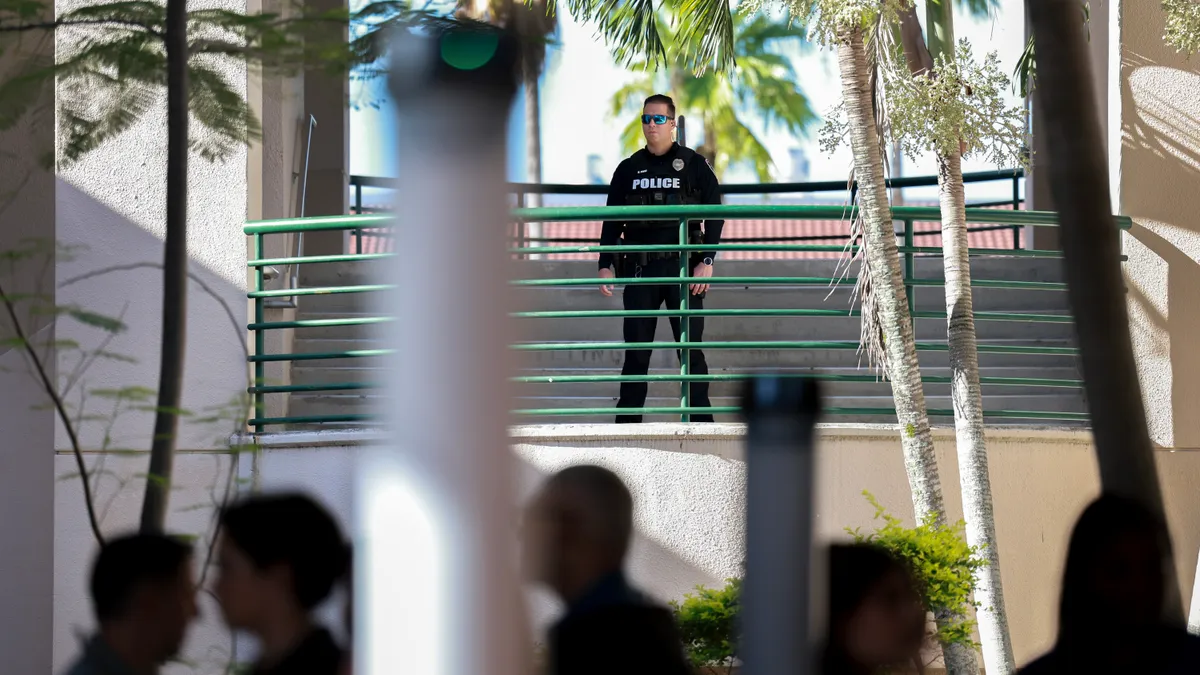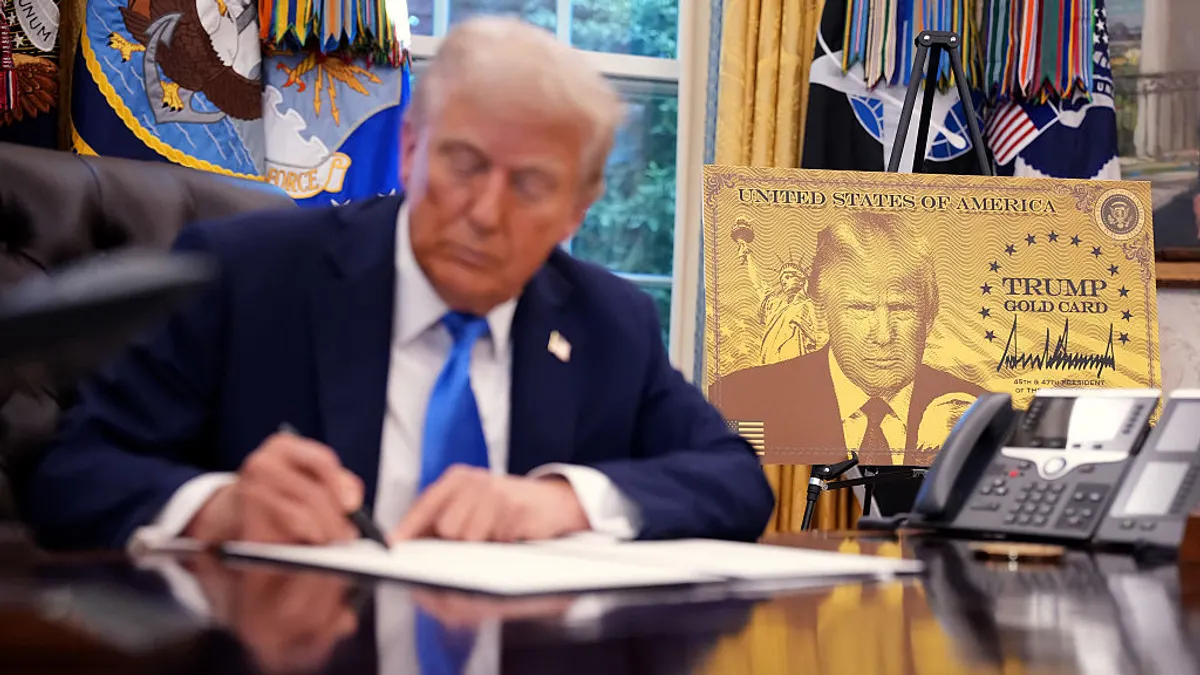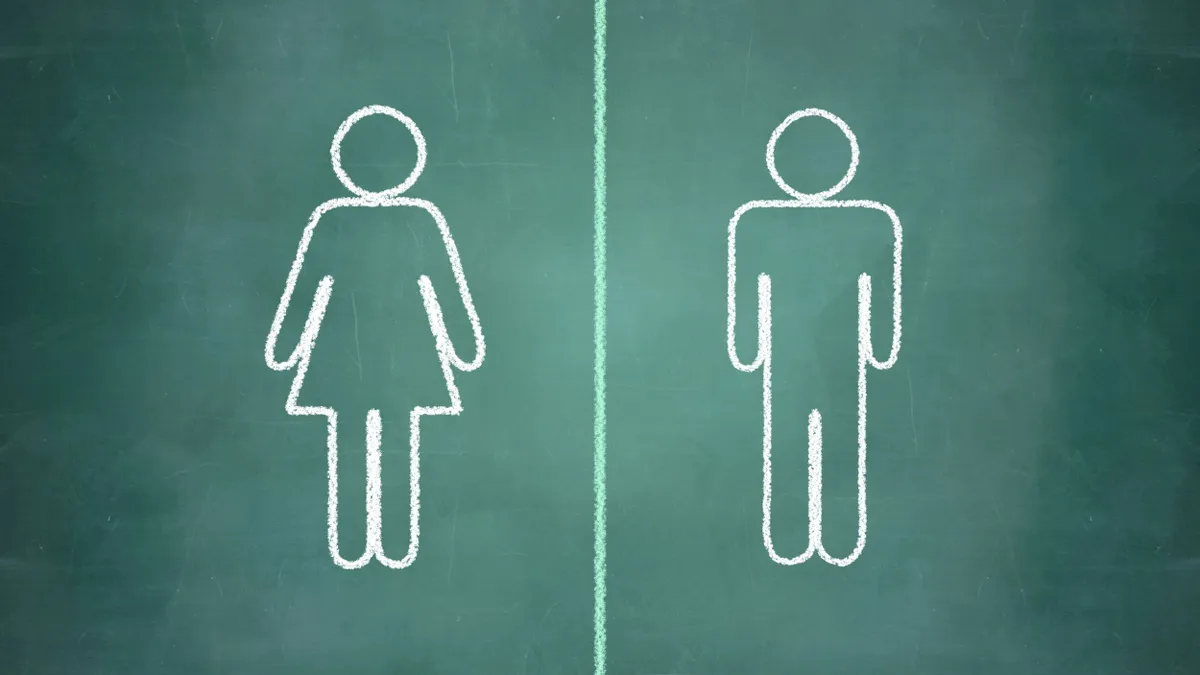The Food and Drug Administration has extended its review of Pfizer and BioNTech's COVID-19 vaccine in children under 5, pushing back plans to expedite a decision so the drugmakers can gather more data from an ongoing clinical trial.
In twin announcements Friday afternoon, Pfizer and the FDA said the company will wait to finish filing for authorization of their shot in infants and young kids until they have more results on the efficacy of a third dose. As a result, the FDA postponed a highly anticipated advisory committee meeting that was set for Tuesday and will likely not decide on clearance of the shot until later this spring.
"At this time, it makes sense for us to wait until we have the data from the evaluation of the third dose before taking action," said Marks, the director of the FDA's vaccine review office, on a conference call with reporters.
The reversal is the latest twist in efforts to expand COVID-19 vaccine eligibility to younger age groups. Coronavirus shots are approved for adults, teenagers and children 5 years and older, leaving the 19 million Americans who are younger without an option.
While kids are less likely than adults to experience COVID-19’s most serious outcomes, children under 5 still accounted for 2% of COVID-19 hospitalizations reported the week ending Feb. 5, according to data from the Centers for Disease Control and Prevention.
Infections in children have also "spiked dramatically" during the omicron surge, according to the American Academy of Pediatrics. Mild infections can lead to long-lasting symptoms, cause outbreaks in communities and daycare facilities, and disrupt work for parents.
Pfizer and BioNTech have been testing their vaccine in younger people through a clinical trial process known as "immunobridging." Having already demonstrated their shot can prevent COVID-19 in adults, they've been running studies to assess whether vaccination stimulates an equivalent immune response in adolescents and young kids.
This strategy is an inexact science with COVID-19, as researchers still don't know the precise levels of coronavirus antibodies needed to protect people from infections and disease.
But immunobridging is meant to be a faster and easier way to broaden use than waiting for the large clinical trials that more definitively measure whether participants get sick. The plan has worked in teenagers and children as young as 5 years old, raising hopes that younger children and infants would quickly be next.
In December, however, Pfizer and BioNTech reported that a two-dose regimen, while safe, likely wasn't effective enough in most kids under 5. In response, they began giving a third dose to study volunteers at least two months later, and, in an unusual move, the FDA urged the company to file for emergency clearance before getting all of those results.
The FDA reportedly made that decision to help speed access to a two-dose regimen and, if found effective enough, a third shot. The choice was criticized by some experts, who were concerned the plan risked damaging trust if the third-dose results weren't sufficiently positive. Some parents, for instance, remain hesitant to vaccinate their children. A Kaiser Family Foundation poll published earlier this month found that just 31% of parents of children under the age of 5 say they would vaccinate their kids immediately after an FDA authorization.
The Feb. 15 meeting of FDA advisers was scheduled to help vet the two-dose data the FDA and Pfizer had in hand, and counsel the agency on its decision-making.
Instead, an early assessment of new study findings, which haven't been made public, convinced the regulator to wait.
The FDA "is adjusting" to the new results, Marks said on Friday. "Rather than having any issue of causing anyone to question the process, I hope this reassures people that the process has a standard, that the process is one that we follow," he added.
In a statement Friday, Pfizer said three doses should provide "a higher level of protection" than it's observed from two doses. The data should be available in early April given the rapid pace of infections and illness amid the spread of the omicron variant.
Marks indicated that by then results should include information on how well three doses prevents disease, as well as the immune response they generate.


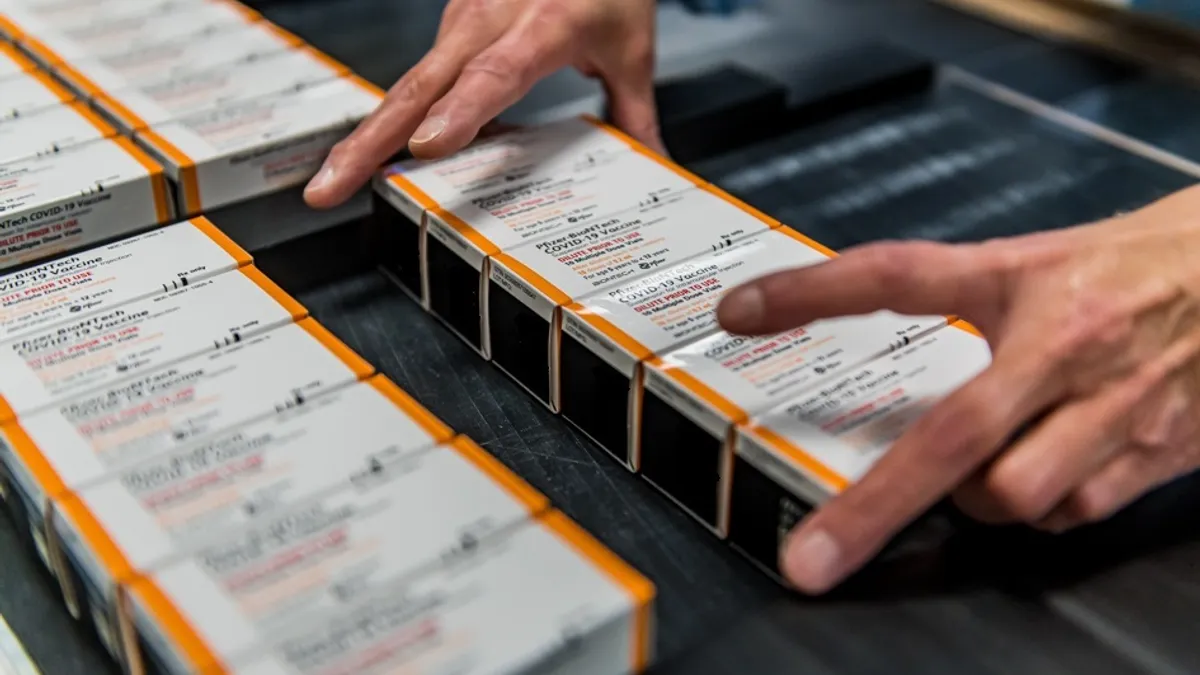




 Dive Awards
Dive Awards



